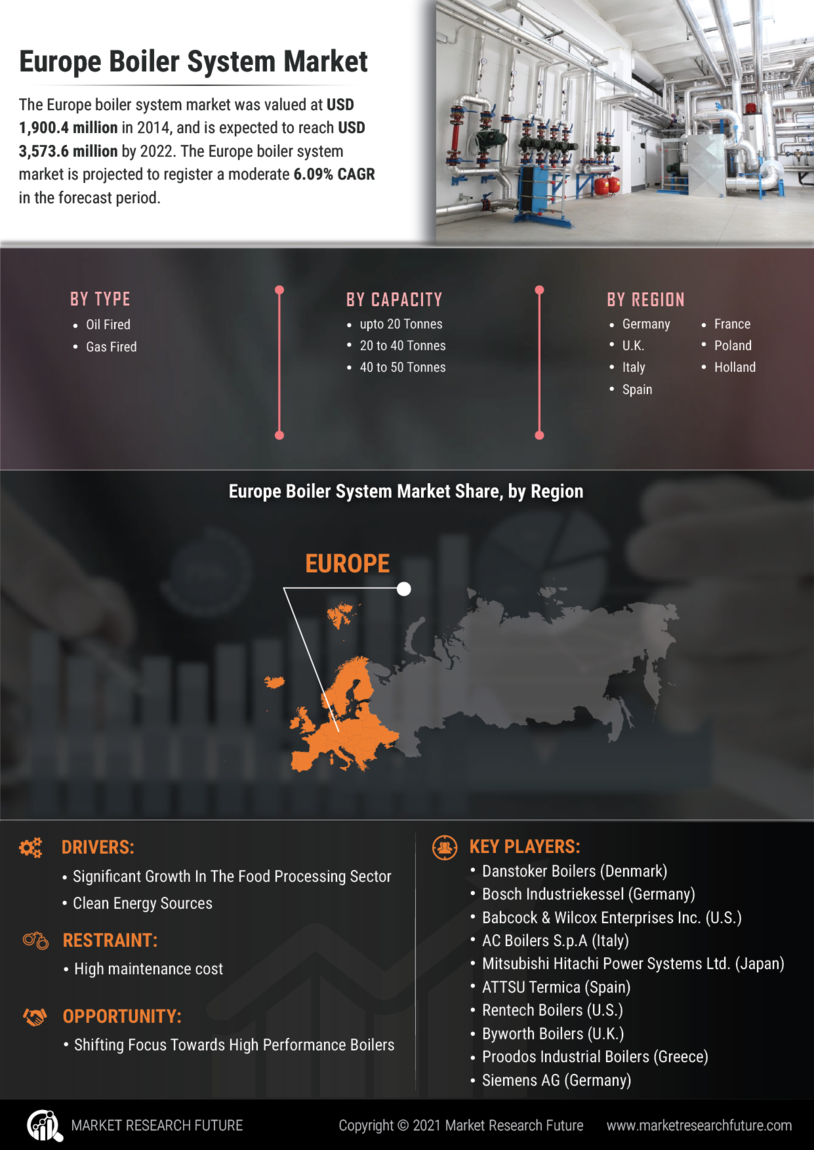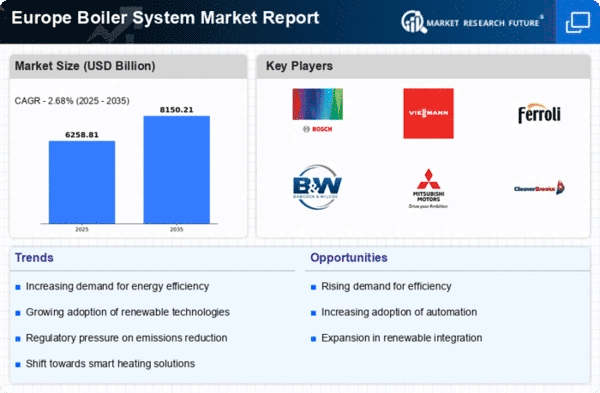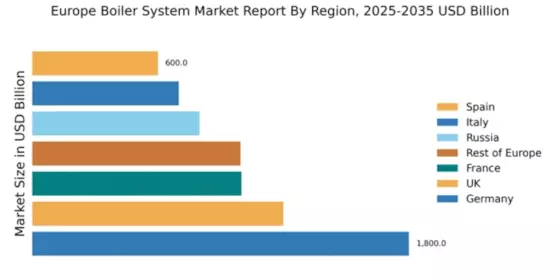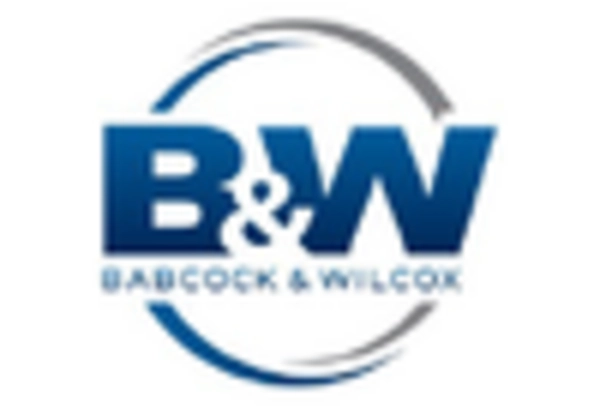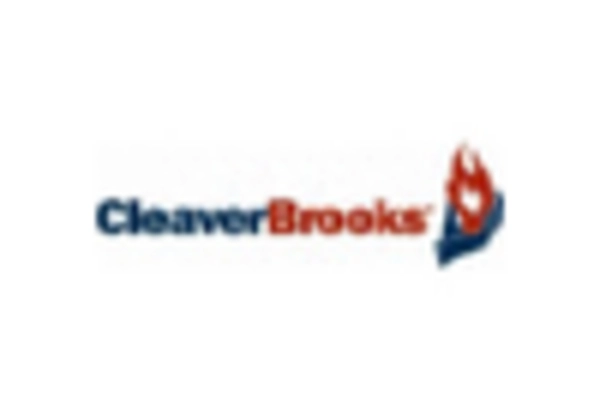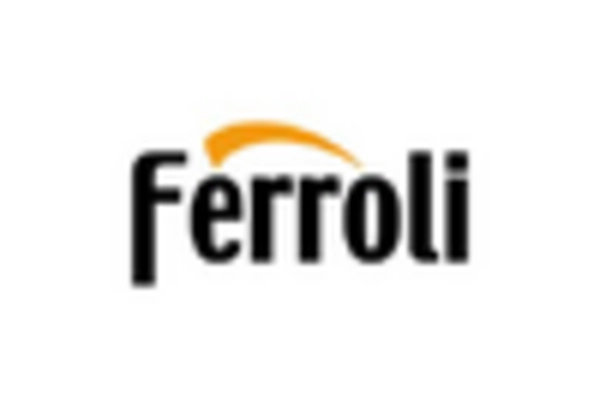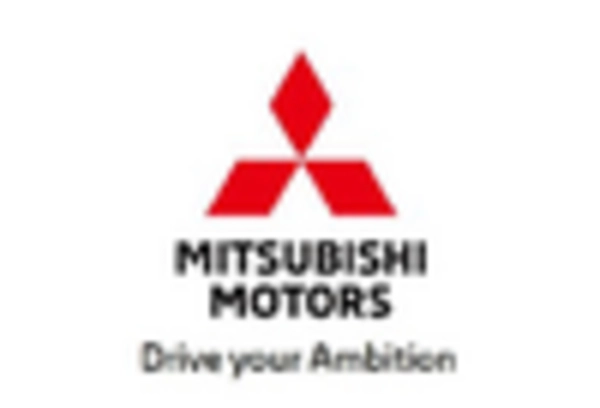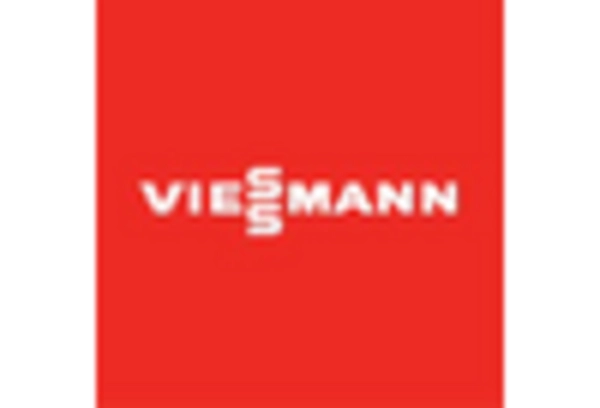Germany : Strong Demand and Innovation Drive Growth
Key markets within Germany include major cities like Berlin, Munich, and Hamburg, where industrial and residential demand for boiler systems is high. The competitive landscape features prominent players such as Bosch and Viessmann, who lead in innovation and market share. Local dynamics are characterized by a strong emphasis on energy efficiency and sustainability, with applications spanning residential heating, industrial processes, and district heating systems. The business environment is favorable, supported by government incentives for green technologies.
UK : Transition to Low-Carbon Solutions
Key markets include London, Manchester, and Birmingham, where urbanization and population growth are driving demand. The competitive landscape features major players like Babcock & Wilcox and Mitsubishi, who are focusing on innovative solutions. The local market is dynamic, with a growing emphasis on renewable energy applications, particularly in residential and commercial sectors. The business environment is increasingly supportive of green initiatives, fostering collaboration between public and private sectors.
France : Focus on Energy Efficiency Initiatives
Key markets include Paris, Lyon, and Marseille, where urban development and industrial activities are prominent. The competitive landscape features players like Ferroli and Viessmann, who are well-established in the region. Local dynamics are influenced by a strong emphasis on sustainability, with applications in residential heating, commercial buildings, and industrial processes. The business environment is conducive to innovation, supported by government incentives for energy-efficient technologies.
Russia : Industrial Growth Fuels Demand
Key markets include Moscow, St. Petersburg, and Kazan, where industrial activities are concentrated. The competitive landscape features both local and international players, with significant presence from companies like Cleaver-Brooks and Aalborg. Local market dynamics are characterized by a mix of traditional and modern heating solutions, with applications in industrial processes and district heating. The business environment is evolving, with increasing investments in energy efficiency and modernization efforts.
Italy : Focus on Energy Transition
Key markets include Milan, Rome, and Turin, where both residential and industrial demand is significant. The competitive landscape features major players like Ferroli, who are focusing on innovation and sustainability. Local dynamics are influenced by a strong emphasis on energy efficiency, with applications in residential heating, commercial buildings, and industrial processes. The business environment is supportive of green initiatives, fostering collaboration between public and private sectors.
Spain : Shift Towards Sustainable Heating Solutions
Key markets include Madrid, Barcelona, and Valencia, where urbanization and population growth are driving demand. The competitive landscape features both local and international players, with significant presence from companies like Bosch and Viessmann. Local market dynamics are characterized by a growing emphasis on sustainability, with applications in residential heating, commercial buildings, and industrial processes. The business environment is increasingly supportive of green initiatives, fostering innovation and investment.
Rest of Europe : Varied Demand Across Regions
Key markets include cities across Scandinavia, Eastern Europe, and the Balkans, where industrial and residential demand varies significantly. the competitive landscape features a mix of local and international players, with companies like Hurst Boiler and Zhongding establishing a significant presence. Local dynamics are influenced by regional policies and market conditions, with applications in residential heating, commercial buildings, and industrial processes. The business environment is evolving, with increasing investments in energy efficiency and modernization efforts.
